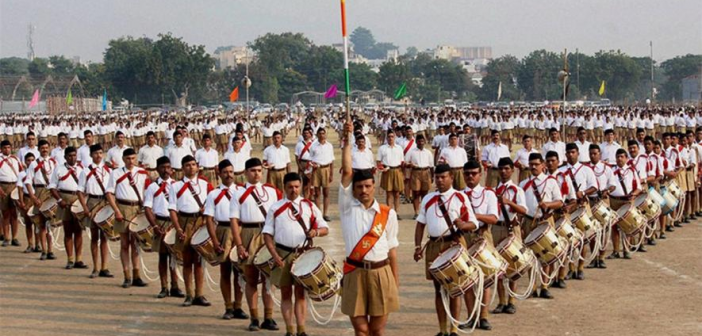The Rashtriya Swayamsevak Sangh (RSS), a Hindu nationalist organization founded in 1925, is a complex and influential force in contemporary India. Its role in shaping Indian society and culture is a topic of much debate. This article delves into the significance of the RSS, its contributions to India, and its potential role in shaping a modern India.
National Identity and Cultural Revival: The Core Principles of RSS
The RSS espouses the ideology of Hindutva, promoting the concept of a unified Hindu nation encompassing all religions and ethnicities with roots in India. Its core principles revolve around:
- Cultural Revival: The RSS emphasizes the importance of preserving and promoting India’s rich Hindu heritage, from ancient scriptures to traditional values.
- National Unity: The organization stresses national unity and integration, advocating for a sense of shared identity amongst all Indians.
- Social Service: The RSS has a strong network of affiliated organizations engaged in social service activities, from disaster relief to education initiatives.
Contributions to India: A Legacy of Service
Despite controversies surrounding its ideology, the RSS has undeniably made significant contributions to India:
- Social Upliftment: The Sangh Parivar, a network of organizations affiliated with the RSS, runs schools, hospitals, and vocational training centers, particularly in rural areas. These institutions provide much-needed social services to underprivileged communities.
- Disaster Relief: RSS volunteers have been at the forefront of disaster relief efforts across India, responding to natural calamities and providing aid to affected communities.
- Promoting Patriotism: The RSS instills a sense of patriotism and social responsibility in its members, encouraging active participation in nation-building.
The Challenge of Inclusivity: Reconciling Ideology with Modernity
Critics argue that the RSS’s emphasis on Hindutva marginalizes minority communities and creates a sense of exclusion. Religious tolerance and inclusivity are vital in a diverse nation like India. The RSS needs to adapt its ideology to promote a more inclusive vision of Indian nationalism.
Shaping a Modern India: The Potential Role of RSS
If the RSS can address the issue of inclusivity, it has the potential to play a positive role in shaping a modern India:
- Moral Compass: The organization’s emphasis on ethical values and social responsibility can contribute to a more character-driven society.
- Grassroots Mobilization: The vast network of RSS volunteers can be a powerful force for social change and community development.
- Cultural Awareness: The RSS can promote awareness of India’s rich heritage, fostering a sense of national pride and cultural identity.
The Path Forward: A Call for Moderation
Moving forward, the RSS needs to navigate a delicate path. It can leverage its strengths – social service, volunteer networks, and cultural awareness – while evolving its ideology to embrace the pluralistic fabric of modern India.
Open dialogue with minority communities and a commitment to inclusivity are crucial. The RSS can be a force for national unity, but only if it embraces the diversity that makes India a vibrant democracy.
Conclusion: A Force to be Reckoned With
The RSS is a powerful organization with a deep influence on Indian society. Its role in shaping a modern India remains to be seen. Whether it becomes a force for inclusivity and social progress, or remains mired in controversy, hinges on its ability to adapt to the demands of the 21st century. The future of the RSS is intrinsically linked to the future of India, and its evolution will be a story watched closely by the nation and the world.





